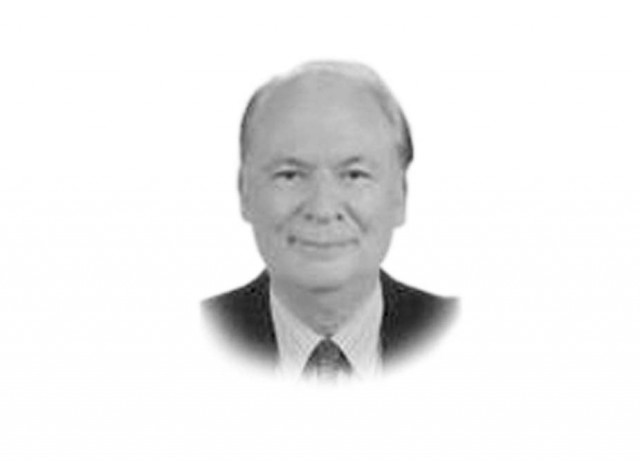Modi’s leap into the future
There is a lurking fear that as he acquires power, Modi might act more like a dictator than a democrat.

anwer.mooraj@tribune.com.pk
While congratulatory messages poured in from different parts of the globe, including our own political pontiff in Islamabad and the much admired prime minister of Bangladesh, I thought I’d find out what my favourite television host Christiane Amanpour of CNN had to say about the victory. I caught her just in time as she was about to turn a quizzical eye on Gurcharan Das, author, commentator and former chief executive of Procter and Gamble in India. It was an interesting interview, insightful, researched and at times, provocative. Amanpour, who doesn’t mince her words, fired a broadside to set the tone of the meeting: “Is a person who, when he was chief minister of Gujarat presided over the 2002 communal riots in which over a thousand people, mostly Muslims, lost their lives, suitable to head the world’s largest democracy? Shouldn’t Modi apologise?” Das replied it would be a wise and magnanimous gesture if he did.

However, he stated that in his victory speech, Modi did point out that he was the prime minister of all Indians, not just the Hindu majority. Perhaps, it was his way of saying that he has changed now that the ambit of his responsibilities has become considerably wider. Das said that he had agonised for a while but eventually voted for Modi because he felt the BJP leader was the right person to inject new life into a sluggish economy where numerous projects that had been started festered through neglect and lack of focus. Half the 1.2 billion population of the country is under 26 years of age and every year, nine million hopefuls are thrown into the job market. A mobilisation such as this could raise the annual growth rate by two per cent. The business community in India is apparently fully behind Modi who has held a ringside seat in the BJP from the very beginning. He is being projected as a high achiever, a man who is going to put things right in the country and raise the per capita income of the average Indian. So, there we have it. A decision dictated by pure economics… not caste or tribal loyalty.
There is a lurking fear that as he acquires power, Modi might act more like a dictator than a democrat. Das quickly dispelled such fears. India has enough constraints to discourage this — especially a pugnacious press and an independent judicial system. Under the Indian system, the degree of fundamentalism among Indian Muslims is low when compared to other Islamic countries. Modi is undoubtedly aware of this and is unlikely to ruffle any more feathers. He has already made a gesture to Prime Minister Nawaz Sharif by inviting him to the swearing-in ceremony. Let’s hope the spirit of reconciliation continues.
Published in The Express Tribune, May 25th, 2014.
Like Opinion & Editorial on Facebook, follow @ETOpEd on Twitter to receive all updates on all our daily pieces.















COMMENTS
Comments are moderated and generally will be posted if they are on-topic and not abusive.
For more information, please see our Comments FAQ